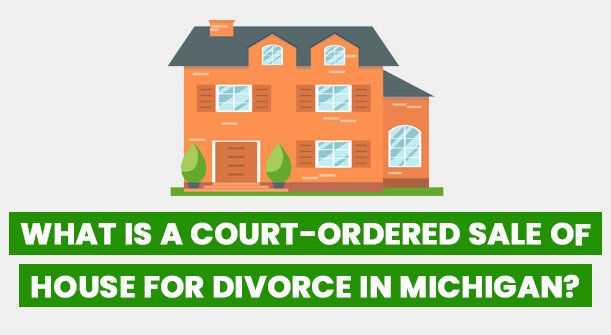
Divorce proceedings can be emotionally and financially challenging, especially when it comes to the division of marital assets. One significant aspect that often arises during a divorce is the sale of a house.
Court-ordered sales are a common occurrence in divorce cases, and understanding the process and implications can help you navigate this complex situation. By gaining insight into court-ordered house sales, you can make informed decisions when selling a house during divorce in Michigan.
What is a Court-Ordered Sale?
A court-ordered sale refers to the legal process of selling a house as part of a divorce settlement. When couples cannot reach an agreement on how to divide their marital assets, including the house, the court may intervene and order the sale.
This ensures a fair and equitable distribution of property between the parties involved. The court’s decision to order the sale is based on various factors, such as
- The value of the property
- The financial needs of both parties
- The presence of children.
Under certain circumstances, a court might order the sale of a house in a divorce. For example, if one spouse wishes to keep the house but cannot afford to buy out the other party’s share, selling the home may be the most viable option.
Additionally, if the house is considered marital property, meaning it was acquired during the marriage, it is subject to division between both spouses. Understanding the concept of court-ordered sales is essential to navigate the legal complexities of divorce proceedings.
Legal Process of a Court-Ordered Sale in Michigan
The legal process of a court-ordered sale involves several steps.
- Filing for Divorce: One spouse files for divorce, and during the proceedings, the court determines the division of assets, including the sale of property if necessary.
- Property Evaluation: The court assesses the value of the property, often through appraisals, to determine its worth in the division of assets.
- Court Order for Sale: If both parties cannot agree on property division, the court may order the sale of the property and outline the terms, including the sale price and distribution of proceeds.
- Listing and Sale: The property is listed for sale, typically through a real estate agent, and sold according to the court’s directives.
- Distribution of Proceeds: After the sale, the proceeds are distributed according to the court’s orders, usually to satisfy debts or to divide the funds between the divorcing spouses as determined in the divorce decree.
This process involves legal filings, property valuation, court orders, and sale execution to ensure the fair division of assets during a divorce in Michigan.
Factors Affecting Court-Ordered Sales
When deciding whether to order the sale of a house, courts consider various factors.
One primary consideration is the value of the property. An appraisal may be conducted to determine the fair market value, which can influence the court’s decision. The financial needs of both parties are also taken into account. If one spouse requires funds to secure housing or cover other expenses, the court may order the sale to provide financial support.
In cases involving children, the court may prioritize their well-being when making decisions about the sale of the marital home. Stability and continuity are often considered, especially if the children have strong ties to the neighborhood or school district. The court may also consider the ability of either spouse to maintain the property independently, taking into account factors such as mortgage payments and ongoing maintenance costs.
Financial Implications
The financial implications of a court-ordered sale are significant and should not be overlooked. Once the house is sold, the proceeds will be divided between the parties according to the court’s decision. This division may not be an equal split, as it depends on various factors such as each spouse’s financial situation and contributions to the property.
Consider the tax implications of a court-ordered sale. Depending on the jurisdiction and specific circumstances, capital gains tax may apply if the property has appreciated in value since its purchase.
The sale of a house through a court order can also impact your credit and future purchasing ability. It is crucial to manage the proceeds from the sale responsibly and address any outstanding debts or financial obligations promptly.
Alternatives to Court-Ordered Sales
While court-ordered sales are a common solution in divorce cases, there are alternatives to consider. One option is a cash home sale, where the property is sold quickly for a lump sum. This can provide a faster resolution and minimize the need for court intervention.
Another alternative is a buyout, where one spouse purchases the other’s share of the property. This can be achieved through negotiation or mediation, allowing for a more amicable resolution. Refinancing options may also be explored if one spouse wishes to keep the house but requires a new mortgage in their name.
In some cases, temporary arrangements can be made, allowing one spouse to remain in the house for a specific period. This can provide stability for children or allow time for financial arrangements to be made. However, it is important to note that delaying the sale may prolong the divorce process and potentially increase legal costs.
We Buy Houses in Detroit, Michigan
If you need to sell your house fast but don’t want the hassle of a traditional home sale, contact M1 Home Buyers. We buy houses as-is. No repairs are needed. Avoid closing costs and realtor commissions. Close in as little as seven days. Call 248-397-5800 to get a fast cash offer from our local home buyers.

